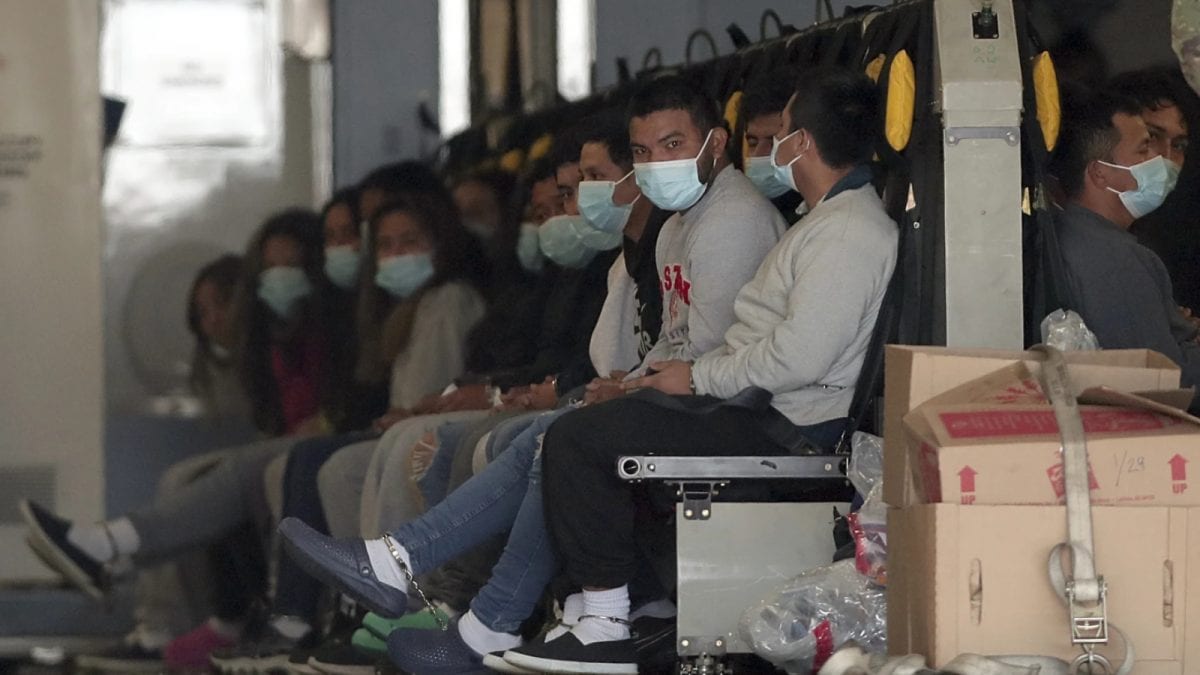 |
|
A recent viral photograph depicting handcuffed and chained Indian immigrants being deported from the United States has been debunked by the Press Information Bureau (PIB) of India. The image, widely shared on social media, fueled outrage and condemnation, particularly from the Indian National Congress party. Congress leader Pawan Khera highlighted the image, drawing parallels to the 2013 incident involving the handcuffing of Indian diplomat Devyani Khobragade in the US. Khera's statement expressed deep concern over the perceived humiliation of Indian citizens during deportation, invoking strong emotional resonance among many Indians who recall the Khobragade affair and the subsequent diplomatic fallout. The PIB's fact-check, however, swiftly revealed the photograph's inaccuracy. The image, originally published by the Associated Press, actually depicted Guatemalan migrants being deported on January 30th, 2025, not Indian citizens. This clarification effectively neutralized the initial wave of public anger directed at the United States government.
The incident underscores the importance of verifying information before reacting emotionally to online content. The rapid spread of misinformation on social media highlights the need for media literacy and critical thinking skills. The false image provided fertile ground for political discourse, with the Congress party seizing the opportunity to criticize the Trump administration's immigration policies and the treatment of Indian citizens. This highlights the complex interplay between social media, political messaging, and international relations. While the image itself proved false, the underlying anxieties regarding immigration policies and the treatment of Indian nationals abroad remain valid concerns warranting further discussion and potential diplomatic engagement.
The contrast between the false image and the actual events emphasizes the need for responsible reporting and the dangers of relying solely on unverified information found online. The speed at which the misinformation spread serves as a cautionary tale about the power and potential pitfalls of social media as a primary source of news and information. The incident also sheds light on the ongoing debate surrounding immigration policies and the ethical considerations related to the treatment of deported individuals. The use of handcuffs and chains, even if in a different context, raises broader questions about human rights and the dignity of individuals during deportation proceedings. The Congress party's response to the false image, while ultimately based on inaccurate information, underscores a broader concern about the portrayal of Indians abroad and the need for their fair treatment under international law.
Furthermore, the incident serves as a reminder of the historical context surrounding India-US relations, particularly regarding diplomatic incidents that evoke strong emotional responses from the Indian public. The Khobragade affair remains a significant event in recent India-US relations, symbolizing issues of sovereignty and national pride. By invoking this past incident, Congress sought to connect the current situation with a well-established narrative of perceived mistreatment of Indians by US authorities. This highlights how past diplomatic incidents can color public perception of current events, even when the facts of the immediate situation differ significantly. The rapid spread of the misinformation also underscores the need for greater cooperation between governments and social media platforms in combating the spread of disinformation and ensuring the accuracy of information shared online.
The interplay between domestic political agendas and international relations is evident in the handling of the fake image. The Congress party's swift use of the image, irrespective of its veracity, reflects a strategy of using emotionally charged events to advance its political narrative. This act underscores the delicate balance between political maneuvering and accurate representation of facts in the realm of international relations. Moving forward, ensuring the accuracy of information disseminated, especially regarding potentially sensitive international affairs, remains crucial. Strengthening media literacy initiatives and promoting responsible social media usage will be essential in preventing similar incidents from occurring in the future and fostering more informed public discourse.
Source: Indian Illegal Immigrants Deported From US In Handcuffs And Chains? PIB Fact-Checks Viral Photo
